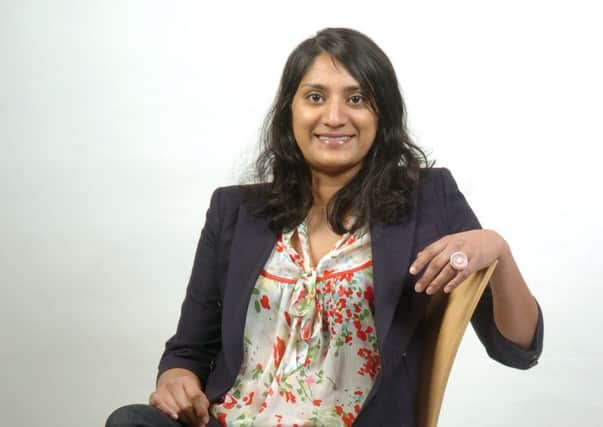Book review: Expecting: The Inner Life Of Pregnancy by Chitra Ramaswamy


Expecting: The Inner Life Of Pregnancy by Chitra Ramaswamy | Saraband, £12.99
APART from our inevitable death – which, as the philosopher Wittgenstein remarked, “is not an event in life: we do not live to experience death” – the only thing which unites all humans is that we began our existence inside someone else. That paradoxical fact is crucial to this intelligent and intimate book. As some readers may be aware, Chitra Ramaswamy is a former colleague of mine, whom I commissioned to write author interviews. As such I already had a high estimation of her talents as a writer, but there is as much of a difference between penning a honed piece of journalism and a full-length book as there is between a sprint and a marathon. Suffice to say Ramaswamy makes the marathon seem like a stroll in the park; though the book has much to say, eloquently, about endurance and immobility.
Advertisement
Hide AdAdvertisement
Hide AdThe book is structured as a series of nine essays, one for each month of her pregnancy. Taken together they add up to something more. Expecting is part memoir, part travelogue, part nature writing, part popular science, part literary criticism, part feminist critique and part investigation. It is a confession, but it is also about confusion: why, given the universality of having been born, does our culture pay so little attention to pregnancy? Ranging from Leo Tolstoy to Sylvia Plath, Gustave Courbet to Pedro Almodovar, and from the Maldives to the Western Isles, it is striking in its ability to concentrate specifically on pregnancy, rather than parenthood. Pregnancy here is not the overture to the opera, but is dealt with as a phenomenon in itself. It must be the first book about pregnancy that does not mention folic acid once.
Ramaswamy is alert to the multiple ironies of pregnancy. “You can be at your most lonely during the one time in your life when you are never alone”, she writes; elsewhere she dwells “on the mystery of living with two heartbeats knocking out their rhythms inside me”. One of the side-effects of the “new nature writing” has been a turn to the body as nature: Kathleen Jamie has written wonderfully on the internal landscape of pathologies; Gavin Francis has written a Baedeker to the body in Adventures In Human Being. Ramaswamy is in the same field, but looks at how we are embodied in nature. She is astute on how her relationship to the land is altered by being nine months pregnant, unable to put on shoes unassisted because of “a person whose feet had never touched the ground”.
The language of pregnancy is subjected to scrutiny – the Latin, praegnans means “before birth”, relegates the whole business of changes in size, shape, hormones, appetites, sleeping patterns and anxieties to a “pre” something else. All the silly euphemisms are unpicked with vigour. There is a nice vein of humour in some of her bewildered responses to the business of childbirth on television and in movies; and an equally strong reading of the evasions and responses to pregnancy in Anna Karenina. One of the gifts of Ramaswamy’s essays is to sensitise the reader to how pregnancy is depicted: I only realised after reading her book that the only time in War And Peace Prince Andrei Bolkonsky tells his wife he loves her is when she has died in childbirth. I then tried to think of any novel I knew that dealt with pregnancy in itself, and came up with precisely one; Joanna Kavenna’s The Birth Of Love.
Using historical examples also allows Ramaswamy to look at another curiosity. Pregnancy is now medicalised, but for most of human history, women would have given birth at home. That is what she elected to do, and the final pages on what can go wrong, and how complex giving birth is, are nail-biting. Even at this crisis and closure there is a steely-eyed determination to notice. She realises, at one point, she has never been in an ambulance before. In an earlier section, reflecting on things happening to her family while she was pregnant, there is a sustained elaboration on another thing that grows within us and changes us irreversibly: cancer.
The point of literature is that we can understand what we can never experience. To be blunt, I am a straight, white, single, childless man. It is fair to say Ramaswamy is none of these. And yet, I found this poetic and polemical book moving and fascinating. It would be a pity if 50 per cent of the population chose not to read this because it was supposedly “about women’s stuff”.